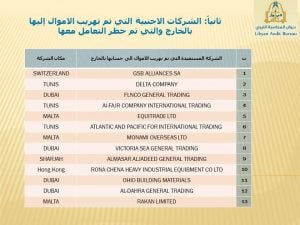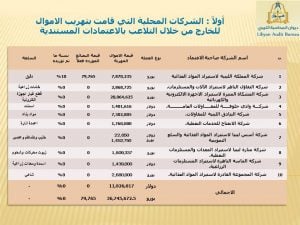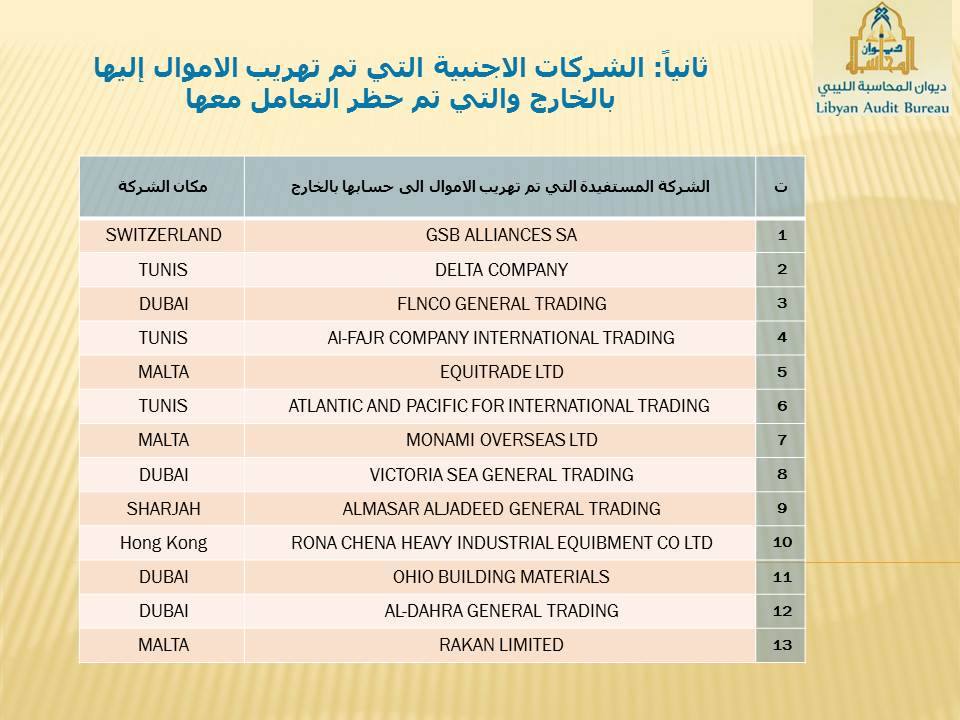By Sami Zaptia.

London, 19 January 2017:
The Tripoli-based Libyan Audit Bureau has today announced that it has banned a total of 23 Libyan and foreign companies from dealing with Libya and has frozen the accounts of companies holding smuggled money from Libya to the value of Euro 37 million and US$ 12 million.
The money was smuggling out of Libya through the Libyan companies (importers) opening Letters of Credit (LCs) in favour of foreign companies (exporters) supposedly to import goods. However, once the money in hard currency was approved by the Central Bank of Libya (CBL) and transferred out of Libya, no goods were ever exported to Libya. Often empty containers are sent or containers loaded with worthless goods costing a fraction of the LC.
The 23 companies are made up of 10 Libyan companies and 13 foreign companies. The foreign companies are from Dubai (4), Malta (3), Tunisia (3), Hong Kong (1), Sharjah (1) and Switzerland (1).
Of the 10 Libyan companies that were banned, nine companies imported zero percent of the value of their LC’s. One imported Euro 79,765 worth of goods out of an LC worth Euro 7.87 million.
In a swipe at the CBL – the CBL being the Libyan entity charged with regulating the collapsing Libyan banking system – the Audit Bureau added in its statement that ‘‘it is not logical to continue to operate in the same way yet expect different results’’.

‘‘The continuation of the Libyan banking sector in dealing with LCs in the same manner without taking any deterrent action and without putting controls and mechanisms that limit the depletion of foreign currency reserves will result in the continuation of the poor state of affairs’’, it added.
‘‘It will lead to the slow collapse of the economy as a result of the exploitation of the state that the country is suffering from by weak souls’’.
It is worth noting that in previous statements, the CBL has pointed out and complained that it is not a law-enforcement agency, and all it can do is refer suspicious operations on to the Public Prosecutor’s Office for further action.
Libya is currently suffering from an acute economic crises due to the crash in international oil prices, the fall in its oil production and its political and military split. It is operating a budget deficit and is surviving through the fast depletion of its foreign currency reserves – ironically amassed over the 42-year Qaddafi era.








